A ‘Rebel’ Without a Ph.D.
A ‘Rebel’ Without a Ph.D.
A conversation with the mathematical physicist Freeman Dyson on quantum electrodynamics, climate change and his latest pet project.
Read related article
Cinematography by Ben Henretig of Micro-Documentaries. Editing by Aaron Biscombe. Music by Dexter Britain.
Select Playlist

Is Information a Fundamental Force of the Universe?

How to ‘See’ the 4th Dimension with Topology

How to Build an ‘Artificial Scientist’

Searching for Dark Matter with a Tabletop ‘Quantum Compass’

Can Large Language Models Understand ‘Meaning’?

Understanding Cryptography With These Five Worlds

How a New X-Ray Technique Sees Black Holes

The Math Hiding in Plain Sight

How AI Learns to ‘See’

How to Build a Telescope to See the Early Universe

When Computers Write Proofs, What’s the Point of Mathematicians?

The Cryptographer Working to Protect Computations

A Bet Against Quantum Gravity

The Digital Quest for Quantum Gravity
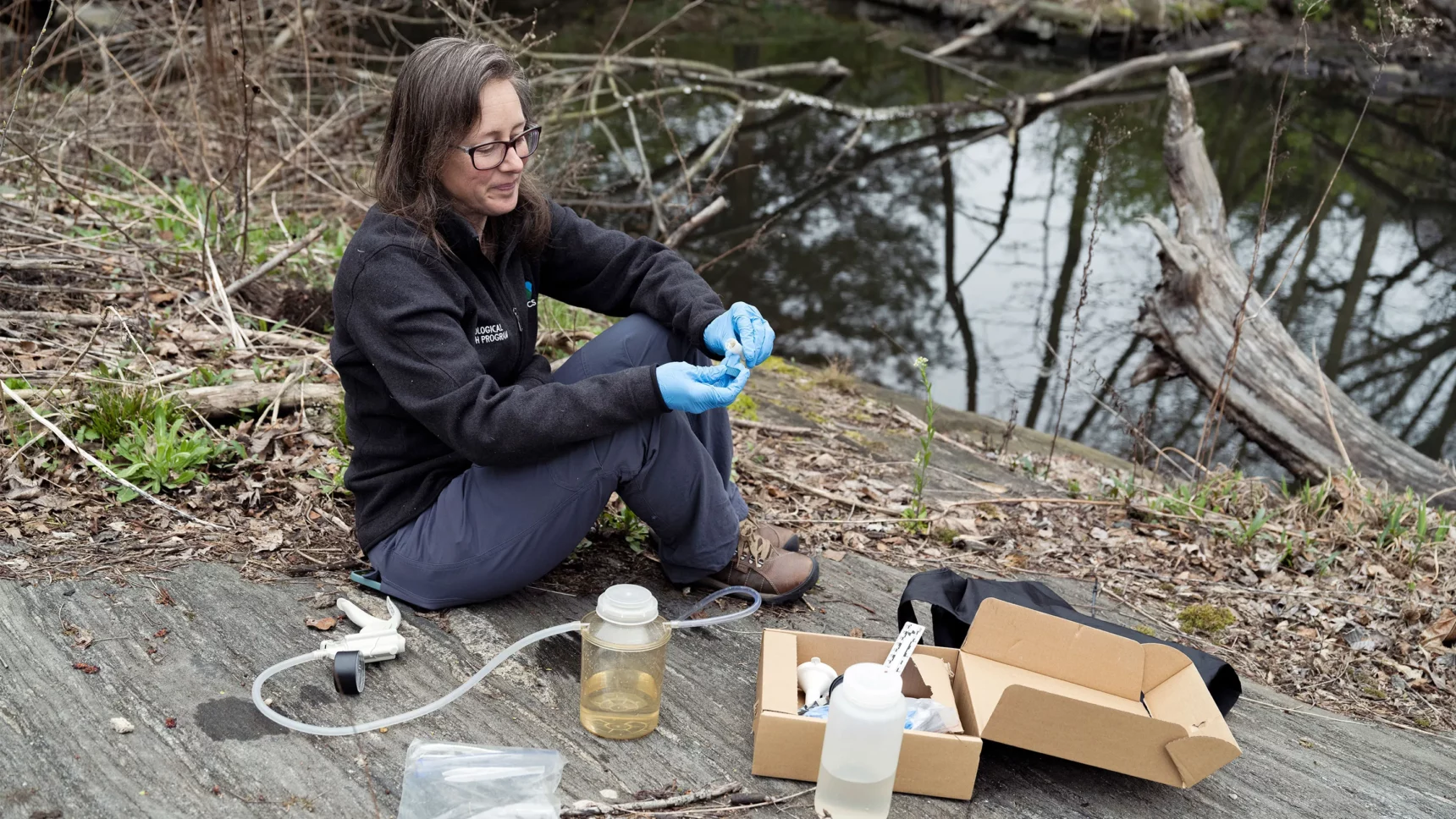
She Tracks Wildlife eDNA on Everest and in the Andes

The Computer Scientist Taking on Big Tech: Privacy, Lies and AI

One Man’s Mission to Unveil Math’s Beauty

The Deep Mystery at the Heart of Life on Earth

The Man Who Revolutionized Computer Science With Math

A Polymath on Physics, Computer Science, Neuroscience and Literature

Steven Strogatz’s Secrets of Math Communication

How Geometry Shapes Our Lives

The Cosmologist Challenging Einstein

Biology Meets Computer Science

This Astronomer Is Determined to Find Another Earth

The Scientific Problem of Consciousness
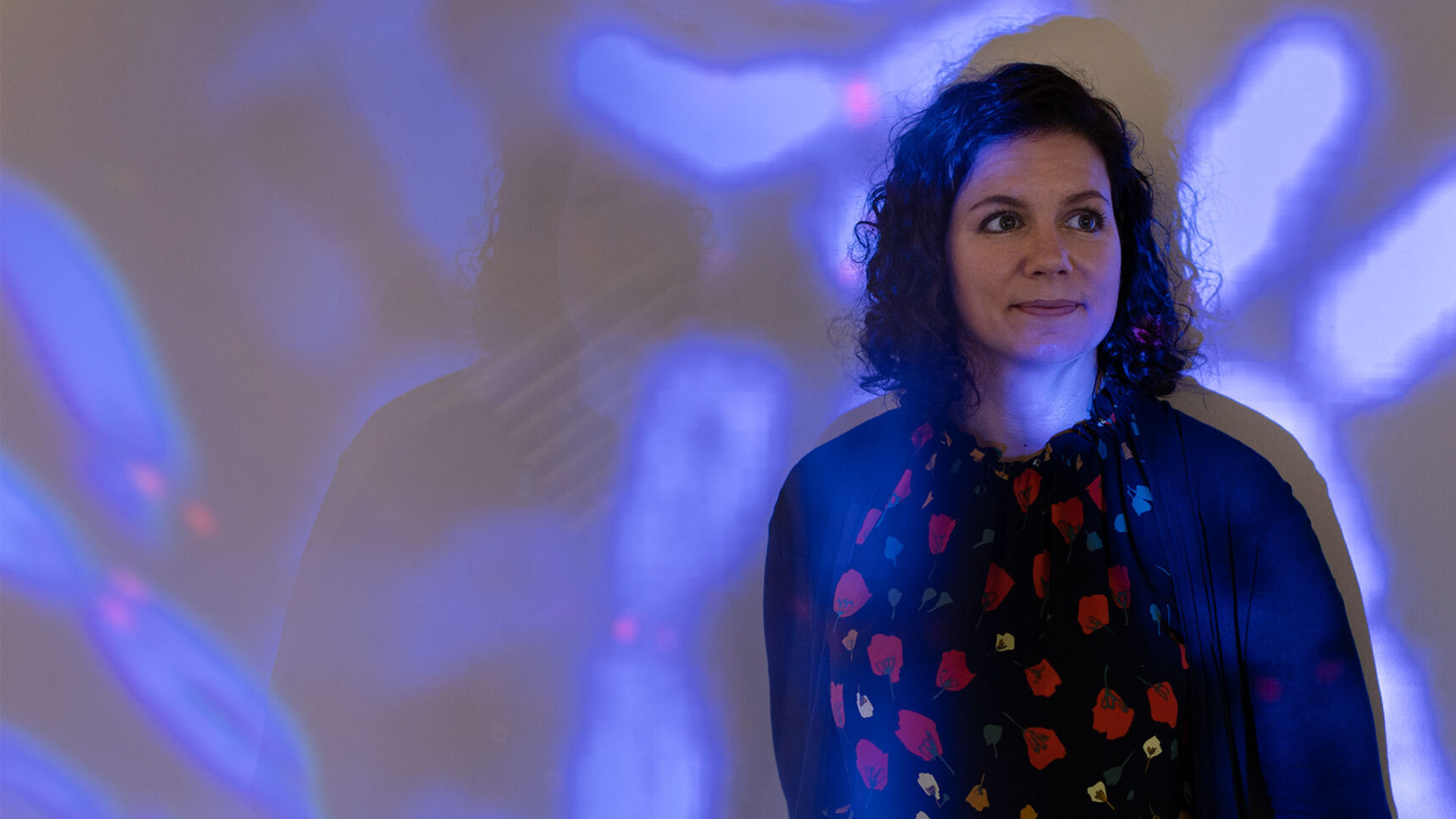
How Scientists Finally Finished the Human Genome

The Missing Link in Artificial Intelligence

The Bridge Between Math and Quantum Field Theory
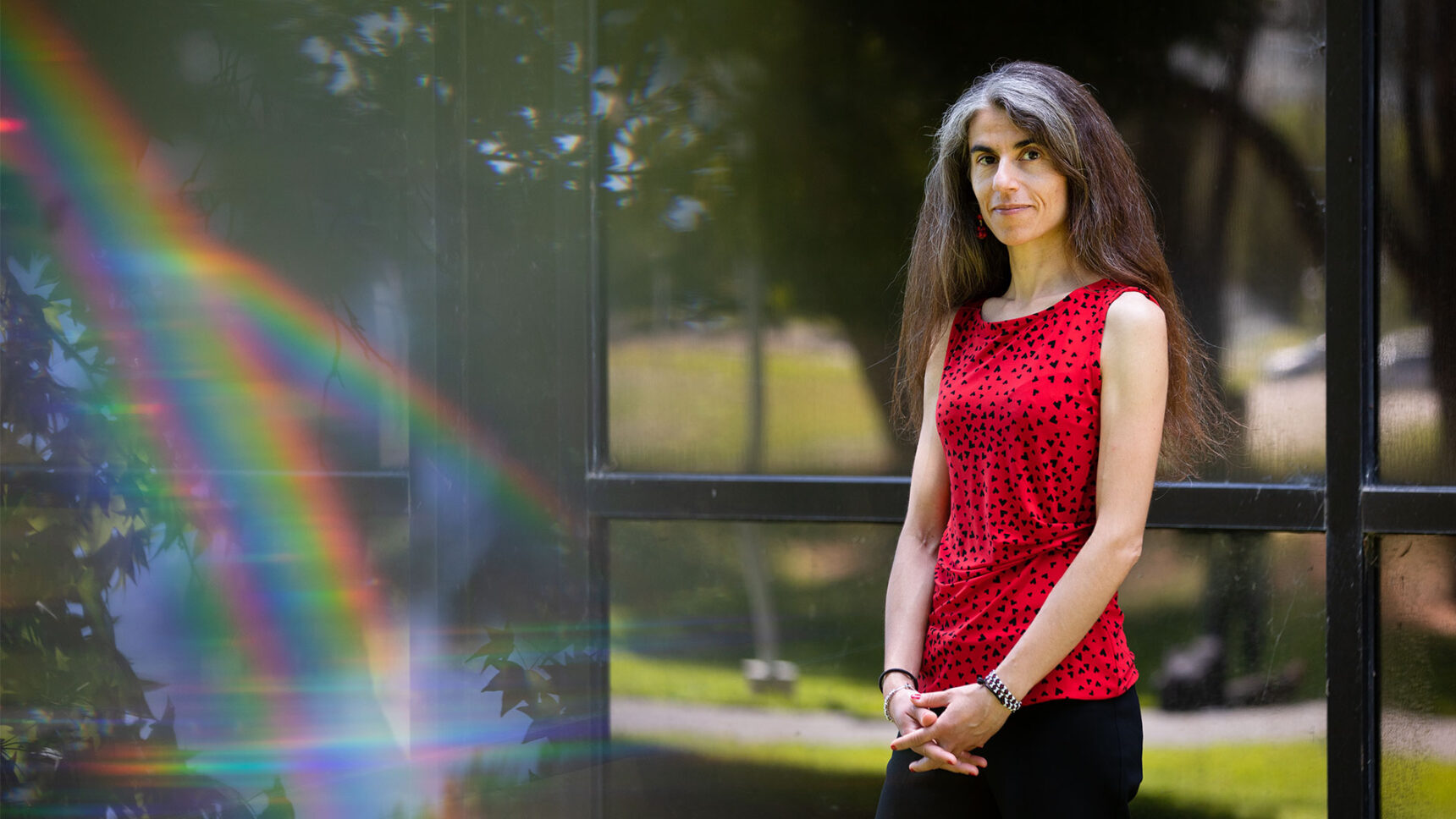
What’s Inside an Exoplanet?

The Theory That Could Rewrite the Laws of Physics

Plate Tectonics: The Mystery of Earth’s Many Faces

Fighting for Equality in Computer Science and Beyond

Why Extraterrestrial Life Might Not Be So Alien

This U.S. Olympiad Coach Has a Unique Approach to Math

How Cosmic Dust Reveals the Secrets of the Universe

Meet One of NASA’s Pioneering Women

What Makes Physics Beautiful, According to a Nobel Prize Winner

New Clues in the Age-Old Question of the ‘Male’ and ‘Female’ Brain

This Computer Scientist’s Streaming Algorithms Shrink Big Data

Inside Dynamical Systems and the Mathematics of Change

The Cosmologist Who Dreams in the Universe’s Dark Threads

The Extraordinary Math Hidden in Everyday Life

The Bold Quest to Launch the Internet in Space

Physicist Jeff Gore’s Statistical Approach to Ecology

Urban Traffic and Complex Systems — Carlos Gershenson

Emily Riehl Is Rewriting Higher Category Theory

Emily Riehl: Mathematician, Musician, Educator

Claudia de Rham: “Gravity Is the Law That Makes Everything Happen”

John Priscu and the Search for Life Under Ice

Liz MacDonald on the strangest auroras in the world.

James Maynard Solves the Hardest Easy Math Problems

Katie Mack Knows How It’s All Going to End

Epidemiologist Tara Smith Answers Coronavirus Questions

Pincelli Hull Explains What Killed Off the Dinosaurs

Ronald Rivest on Building Better Elections
![Omololu Akin-Ojo in a blue checked suit sitting at his desk, framed by two laptops in the foreground.]](https://www.quantamagazine.org/wp-content/uploads/2020/03/Akin-Ojo_1920x1080_VidCover_03-1720x968.jpg)
Omololu Akin-Ojo: Doing Cutting-Edge Physics in Africa

Nobel Laureate James P. Allison on the Origins of His Cancer Immunotherapy Research

Scarlett Howard on the Lessons of Teaching Bees Math

Barbara Liskov on the Future of Computer Science

Virginia Trimble on How Astronomy Has Changed

Stephanie Wehner Aims to Build a Quantum Internet

Craig Callender on the Trouble With Black Hole Thermodynamics

Iyad Rahwan: Why We Need a Science of Machine Behavior

Carlo Rubbia on the Future of Particle Physics
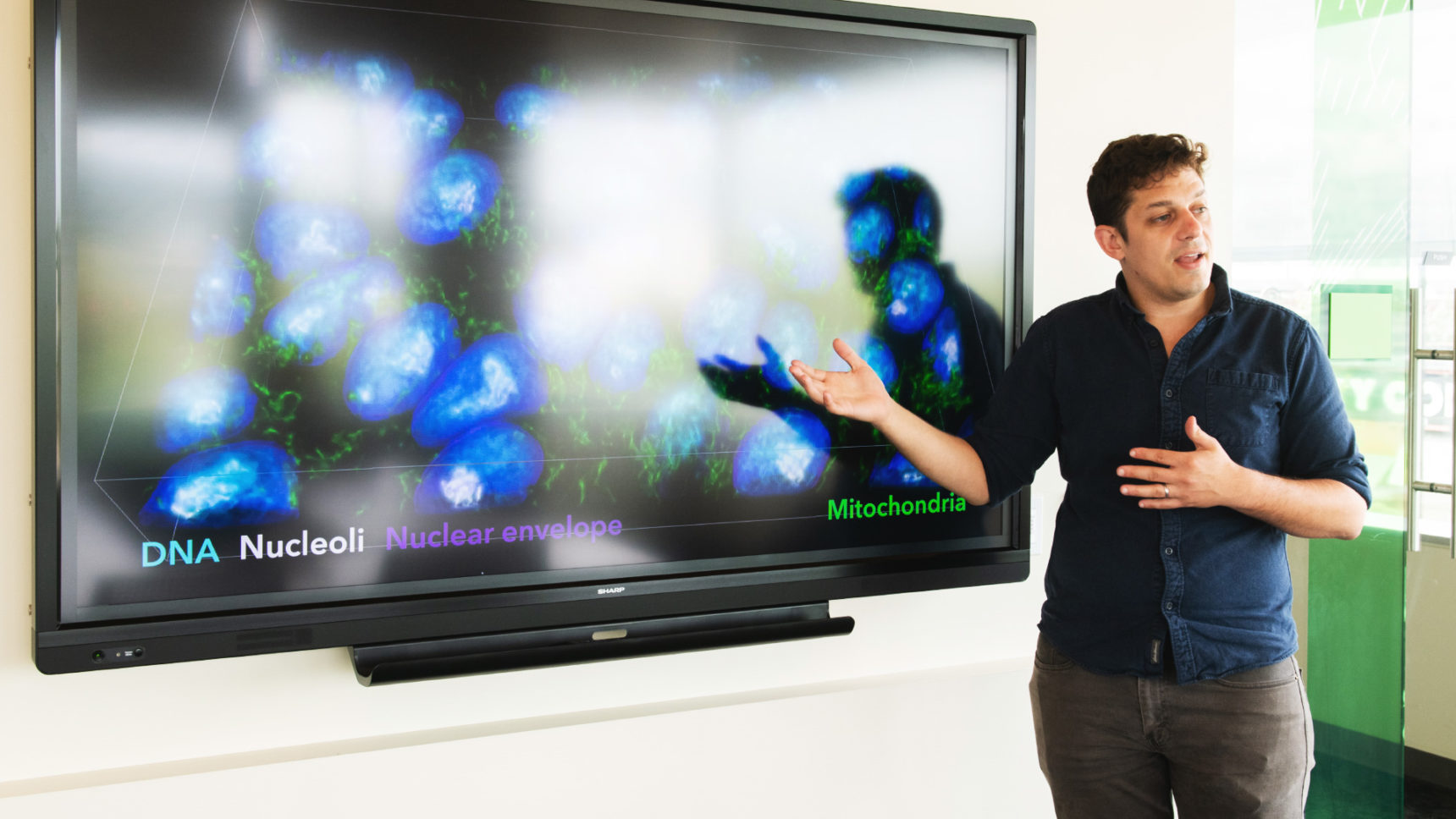
Greg Johnson on A.I. That Sees Inside Cells

Hod Lipson Builds Consciousness Into a Robot

Lee Smolin on the Impossibility of Studying the Universe

Amie Wilkinson on the Mathematics of Change

Edward O. Wilson on the Evolution of Social Behaviors

Jim Gunn on Building Astronomical Instruments

Ecologist Jennifer Dunne on Humans’ Place in Food Webs
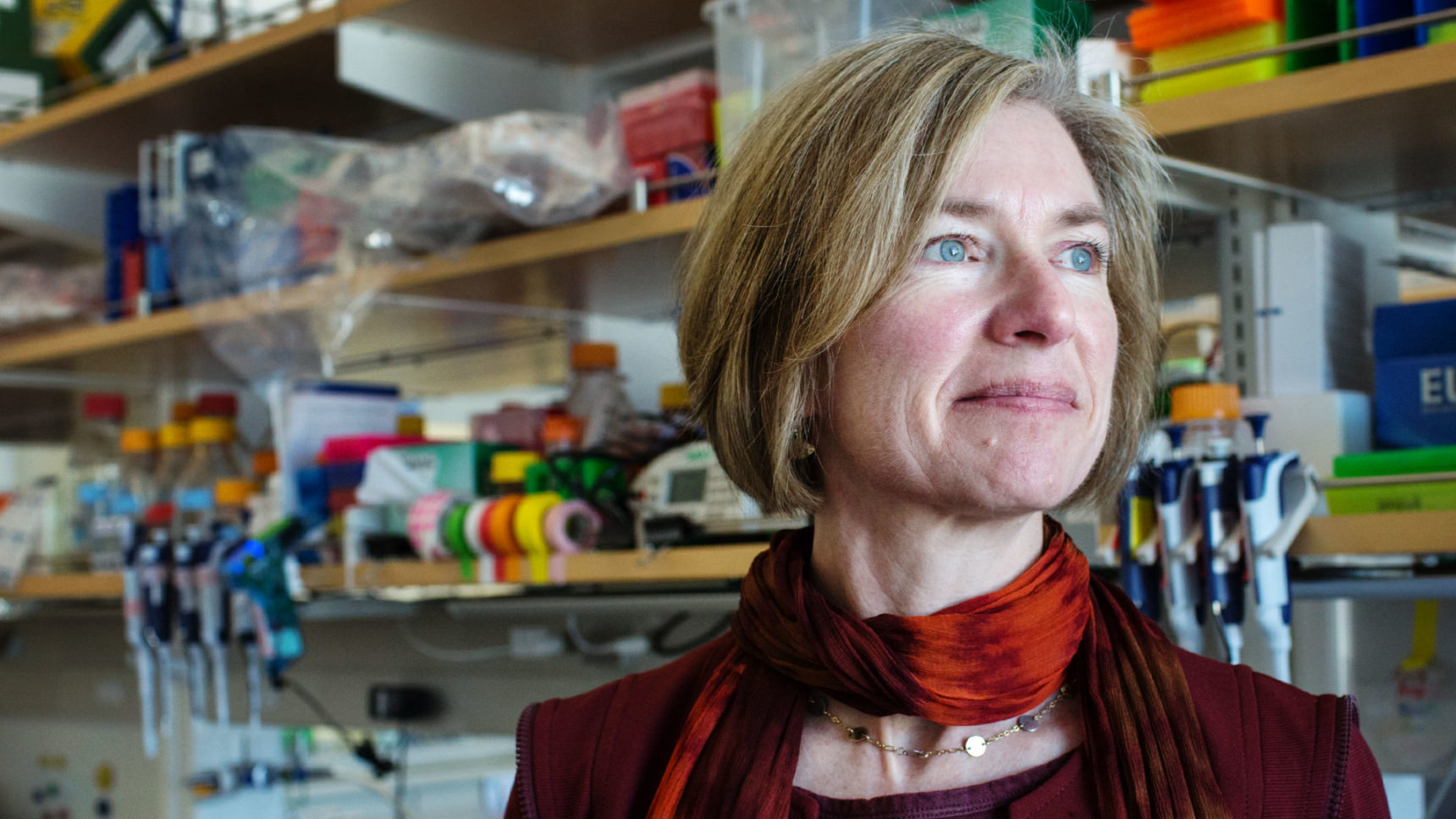
CRISPR Pioneer Jennifer Doudna on Its Research Promise

Priyamvada Natarajan: How Black Holes Shape Galaxies

Carolina Araujo on Supporting Women in Mathematics

Been Kim: A New Approach to Understanding How Machines Think

Meenakshi Wadhwa on Meteorites and the Solar System

Martin Rees on the Future of Science and Humanity

Quanta Writers and Editors on Time, Life, Math and the Universe

Why Different Parts of a Coffee Mug Produce Different Pitches

Valeria Pettorino on Learning About Dark Energy With the Euclid Satellite

Mario Jurić on How Astronomy Is Changing

Renee Reijo Pera on the Importance of Timing in Embryo Development

Tomas Bohr on Performing the Double-Slit Experiment with Bouncing Droplets

Rosaly Lopes on Volcanoes Throughout the Solar System

Akshay Venkatesh: A Number Theorist Who Bridges Math and Time

Constantinos Daskalakis: A Poet of Computation Who Uncovers Distant Truths

Caucher Birkar: An Innovator Who Brings Order to an Infinitude of Equations

Alessio Figalli: A Traveler Who Finds Stability in the Natural World

Cohl Furey on the Octonions and Particle Physics

Jessica Whited on Limb Regeneration and the Axolotl Genome

Carina Curto on How Physicists Can Think About Neuroscience

Lisa Manning on the Dynamics of Glasses and Embryos

Michela Massimi: Defending the Philosophy of Science

Donald Richards: A Revealer of Secrets in the Data of Life and the Universe

Günter Ziegler Seeks God’s Perfect Math Proofs

Barbara Engelhardt on How to Improve Statistical Analyses of Genomes

Daniel Goldman and His Smart Robots

Gil Kalai: Why Quantum Computers Won’t Work

Erich Jarvis on Theories About the Origin of Vocal Learning

Ed Boyden on the Promise of Expansion Microscopy

Richard Schwartz: In Praise of Simple Problems

Corina Tarnita: First Understand Nature’s Rules

Minhyong Kim: Connecting Number Theory to Physics

Federico Ardila: A Mathematician Who Dances to the Joys and Sorrows of Discovery

Michael Assis: The Atomic Theory of Origami

Rebecca Goldin: Why Math Is the Best Way to Make Sense of the World
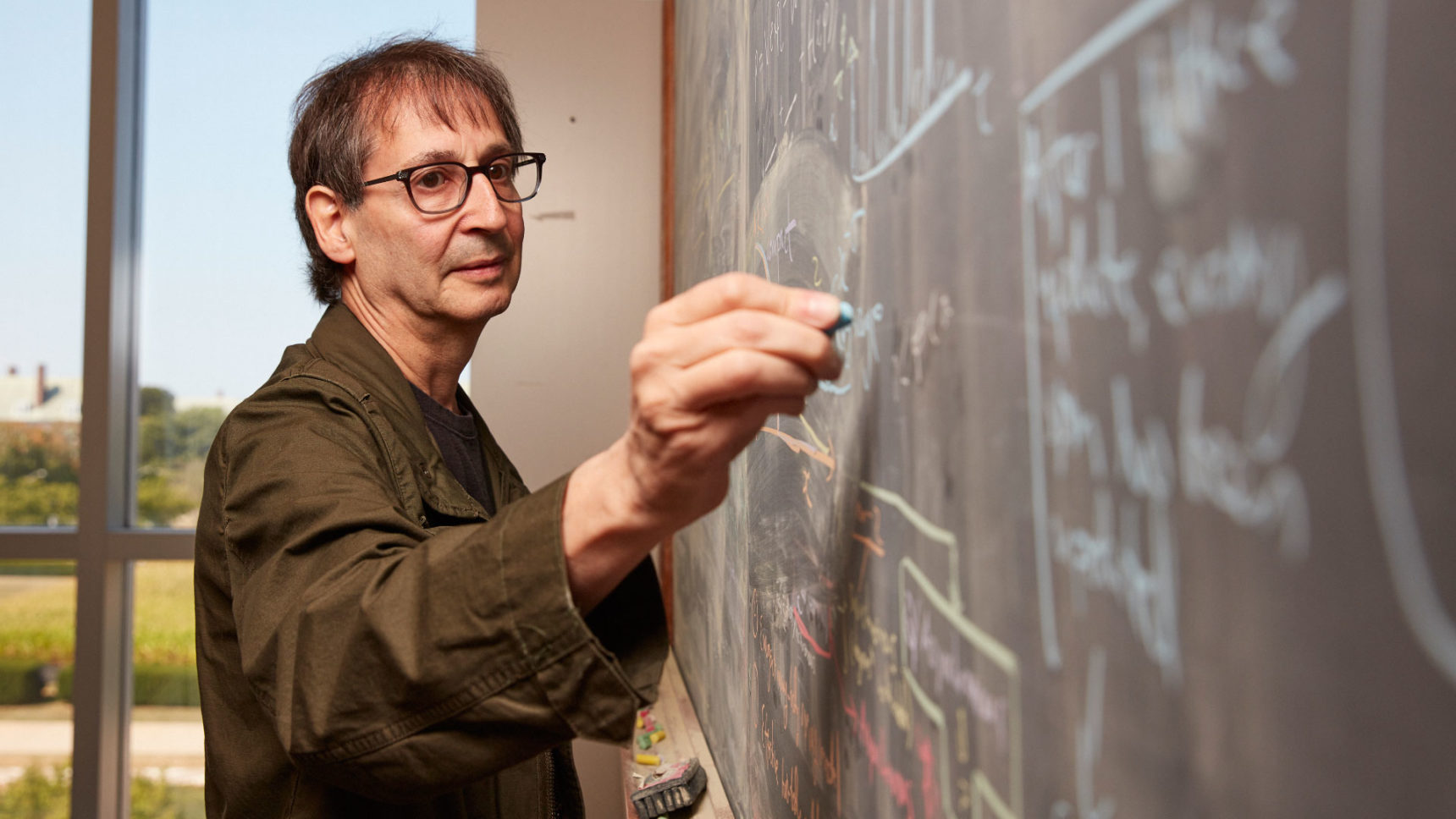
Nigel Goldenfeld: Seeing Emergent Physics Behind Evolution

Neil Johnson: A Physicist Who Models ISIS and the Alt-Right

Svitlana Mayboroda: Taming Rogue Waves

Jay Pasachoff: Eclipse Hunter Reveals the Science That Can Only Be Done in the Dark

Andrea Ghez: Black-Hole Hunter Takes Aim at Einstein

Jessica Flack: How Nature Solves Problems Through Computation
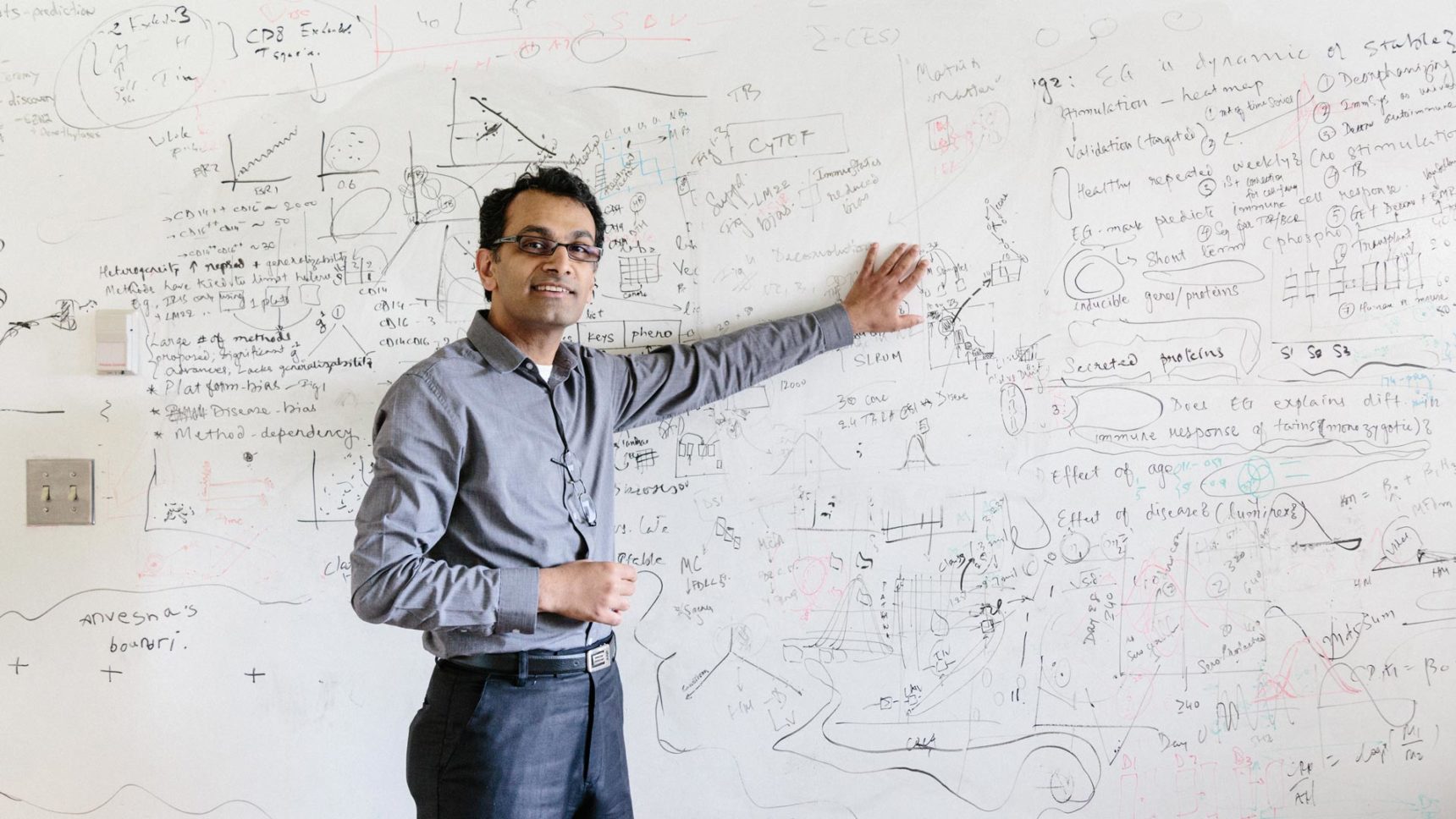
Purvesh Khatri: More Data — the Dirtier the Better

Tim Maudlin: A Defense of the Reality of Time
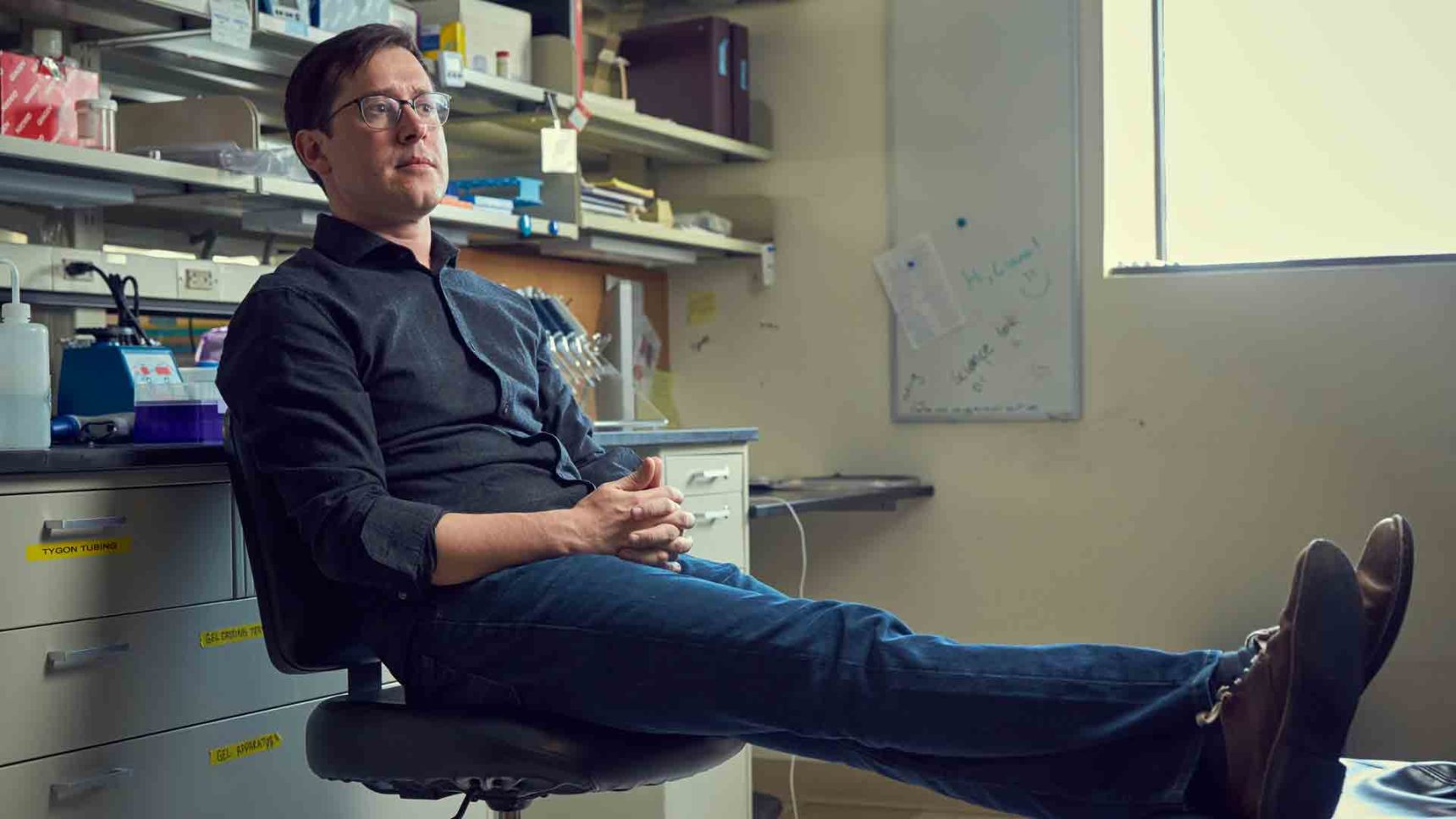
John Novembre: A Map of Human History, Hidden in DNA

Sharon Glotzer: ‘Digital Alchemist’ Seeks Rules of Emergence

Sylvia Serfaty: In Mathematics, ‘You Cannot Be Lied To’

Francis Su: Math and the Good Life

Francis Su: Math Is for Everybody

Marcus Feldman: In Search of Actions That Alter Evolution

Elena Aprile: In the Deep, a Drive to Find Dark Matter

Janet Conrad: On a Hunt for a Ghost of a Particle

Erik Verlinde: The Case Against Dark Matter

Cynthia Dwork: How to Force Our Machines to Play Fair

Richard Lenski: A Conductor of Evolution’s Subtle Symphony
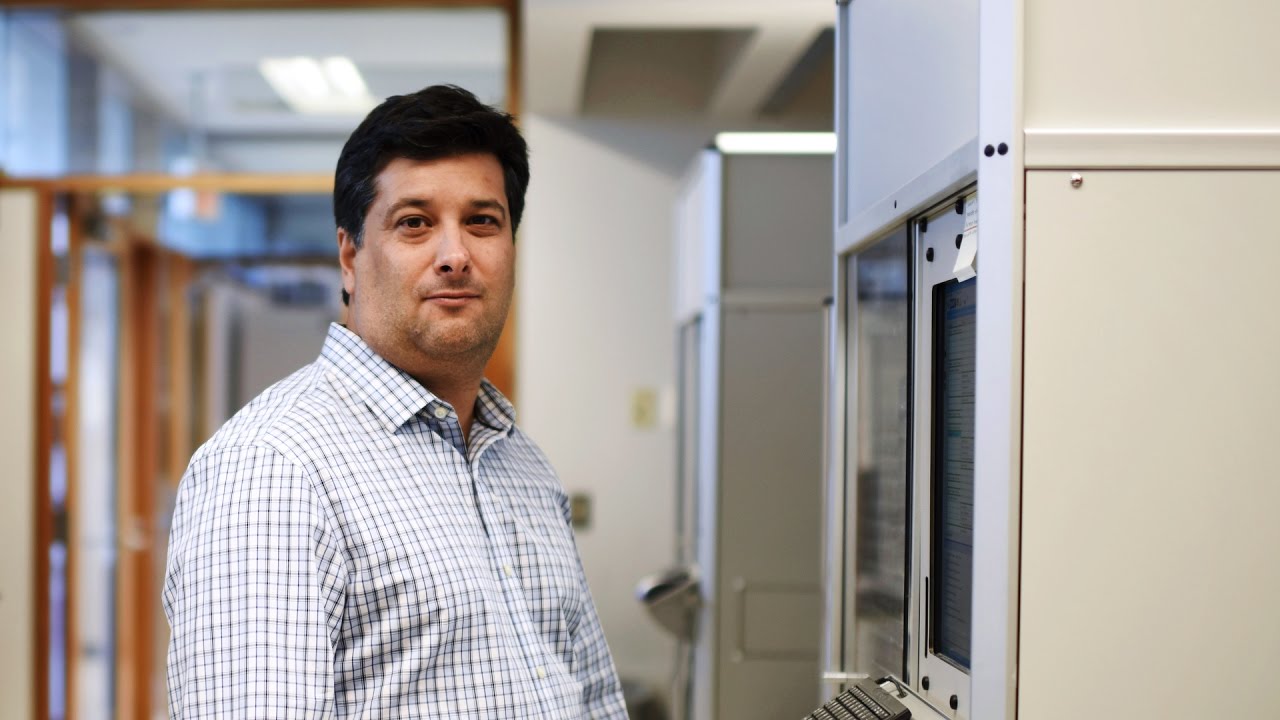
Michael Costanzo: Giant Genetic Map Reveals Life’s Hidden Links

Peter and Rosemary Grant: Watching Evolution Happen in Two Lifetimes

Tracy Slatyer: A Seeker of Dark Matter’s Hidden Light

Miranda Cheng: A Moonshine Master Toys With String Theory

Suchitra Sebastian: An Explorer of Quantum Borderlands

Ken Ono: A Life Inspired by an Unexpected Genius

Janna Levin on Science and Culture

Tiny Tests Seek the Universe’s Big Mysteries

David Moore: Tabletop Physics

The Evolutionary Argument Against Reality

David Deamer: How We’re Studying the Origins of Life

Michael Atiyah’s Imaginative State of Mind

Leslie Valiant: Searching for the Algorithms Underlying Life

Richard Dawid: Why Trust a Theory?

Christoph Adami: The Information Theory of Life

Joan Strassmann: The Woman Who Stared at Wasps

Gabriela González: Searching the Sky for the Wobbles of Gravity

Nima Arkani-Hamed’s Visions of Future Physics

Nancy Moran: An Explorer of Life’s Deepest Partnerships

James Bullock: The Case for Complex Dark Matter

Hiranya Peiris: How to Test If We Live in a Multiverse

Alan Guth: How Many Two-Headed Cows in a Multiverse?

Subhash Khot: A Grand Vision for the Impossible

In Noisy Equations, One Who Heard Music

A Tenacious Explorer of Abstract Surfaces

A Brazilian Wunderkind Who Calms Chaos

Manjul Bhargava: The Musical, Magical Number Theorist

A ‘Rebel’ Without a Ph.D.
Explore All Videos
The Biggest Breakthroughs in Mathematics: 2025
2025 marked a historic year in mathematics. Researchers solved a major case of Hilbert’s ambitious sixth problem, proved a sweeping new theorem about hyperbolic surfaces, and settled the longstanding three-dimensional Kakeya conjecture.
The Biggest Breakthroughs in Physics: 2025
In 2025, physicists spotted a paradigm-shifting new black hole, doubled down on weakening dark energy, and discovered that the Earth’s deep interior may be more connected than previously thought, reshaping our picture of the planet’s engine.
Carlo Rovelli: ‘Time Is an Illusion’
Carlo Rovelli discusses his research on time and his view that it should not appear in the quantum theory of gravity.
A Once-in-a-Century Proof: The Kakeya Conjecture
What is the Kakeya conjecture, and what are the ideas behind the new groundbreaking proof?
Is Information a Fundamental Force of the Universe?
Robert Hazen and Michael Wong discuss their bold proposal for a new law of nature, centered around the idea that information is as fundamental to the cosmos as mass, energy or charge.
Mirror Molecules: The Symmetry Rule Life Never Breaks
Most organic molecules have a mirror-image twin. This concept is known as chirality. Yet life only uses one chiral molecule, not the other. The reason for this asymmetry is one of the greatest mysteries of biology.
How to ‘See’ the 4th Dimension with Topology
Mathematician Maggie Miller explores the strange and fascinating world of 4D topology — the study of shapes, or manifolds, that resemble flat Euclidean space when viewed up close.
Amateurs Solve a Famous Computer Science Problem On Discord
A team of amateurs recently came together in an online collaboration called the Busy Beaver Challenge to pin down the value of BB(5), the fifth “busy beaver” number — a notoriously difficult problem in theoretical computer science.
How to Build an ‘Artificial Scientist’
Physicist Mario Krenn uses artificial intelligence to inspire and accelerate scientific progress.
Get highlights of the most important news delivered to your email inbox








